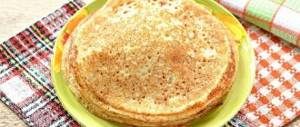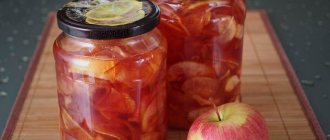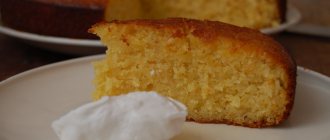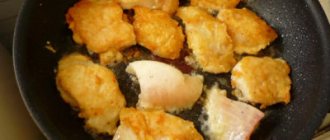- The effect of relaxing baths
- Relaxing bath recipes
- How to take a bath correctly?
| With the arrival of cold weather, the question of how to warm up and normalize your condition after a busy day at work becomes especially acute. You can wrap yourself in a blanket and drink a cup of hot tonic drink, or you can take a relaxing bath . |
A properly prepared bath is a great way to not only relax and enjoy hot water, but also have a beneficial effect on your health and well-being.
The effect of relaxing baths
When we fill the bath with more warm water and plan to spend 15-20 minutes inside, we clearly pursue the goal of not just maintaining body hygiene - a shower is enough for this. We ideally attach a slightly different meaning to the bathing procedure. Yes, in the midst of a cold season, you can simply rush to warm up, but there is a blanket. What then? Relaxation, moments of relaxation, stress relief, when vanity and troubles remain, if not outside the doors of the house, then outside the doors of the bathroom. Relaxing baths are more appropriate than ever for both emotional and physical stress. A properly prepared relaxing bath can relieve the musculoskeletal system and relieve muscle tension. This alone would be enough to improve your mood and feel a surge of energy, but aromatic baths certainly affect our olfactory system. Indirectly, the procedure affects the nervous system and the emotional background - as a result, there will be no trace of minor stress. The effect of relaxing baths is not limited to this, but much depends on what exactly we add to the water.
Additives provide additional effects to the baths taken. They can both enhance the effect of water at the right temperature and perform a therapeutic or cosmetic effect. Among the main additives with a pronounced effect:
- sea salt - its granules will enhance the relaxing effect of water, relieve stress, and ensure the activation of metabolic processes; Sea salt can also boost immunity and speed up the healing process of minor skin damage;
- soda - immersing the body in alkalizing water produces a beneficial cosmetic effect, and also has a beneficial effect on metabolic processes, the acid-base balance of the body, and has an antiseptic effect on minor skin lesions;
- essential oils - in addition to the fact that the oil from a particular plant is endowed with special powers, they all have an additional cosmetic softening and nourishing effect on the skin; the desired therapeutic effect depends on the type of oil, for example, the following are popular:
- pine essential oils - eucalyptus, pine, cedar
- essential oils of spices - cinnamon, cardamom, marjoram
- mint flavors - peppermint, lemon balm,
- citrus aromas - bergamot, orange, lemongrass and lemon itself,
- tropical aromas - ylang-ylang, tea tree, sandalwood;
Immersing the body in warm water relieves tension and restores strength. In order not to awaken chronic diseases, monitor the temperature of the water and the additives used to it. Hypotensive and hypertensive patients and other people with diseases of the cardiovascular system should be treated with special caution when using relaxing baths. And the point here is not so much in the components chosen for the bath, but in the temperature of the water. If a person without any special health complaints is allowed relaxing baths with water up to 40°C (hotter ones are for everyone, but not recommended by doctors), then in case of any ailments of the cardiac and circulatory systems, it is better not to take water with a temperature above human temperature - 35-37 °C.
Relaxing baths are contraindicated when body temperature rises.
Which bath salt is best to buy?
For baths, sea or mineral salt is used. The first is distinguished by large crystals and high effectiveness in treating various problems. It has a beneficial effect on the entire body: improves blood and lymph flow, improves immunity, stimulates cell renewal, cleanses and tightens the skin, and helps cope with dermatological diseases.
Mineral salt is extracted from natural deposits. It has a strong relaxing effect and contains many useful substances.
Depending on the set and concentration of microelements, such salt helps with dermatological problems, relieves joint pain or has other effects. However, its effect is less pronounced.
Herbal extracts and essential oils are often added to bath salts. It is better to choose a product where all the ingredients are natural and do not cause allergies. This is especially important if baths are intended for children or those with sensitive skin.
The packaging must indicate not sodium chloride (NaCl), but the specific type of salt used.
Relaxing bath recipes
The healing effect of simple water at the right temperature on the human body was noticed by our ancestors a long time ago. Even in ancient cultures, natural and mineral waters were supplemented with components with more pronounced effects. And then it was possible not only to warm up or wash, but also to thoroughly relax, activate microcirculation in the body, normalize metabolic processes, and put the emotional and psychological background in order.
Today, recipes for relaxing baths continue to be improved and new ones added. You can come up with your own recipe, based on the therapeutic and cosmetic properties of a particular product, and its combination with other components.
As an example for those who do not want to experiment and are accustomed to trusting only proven recipes, we offer the following combinations:
- decoctions for relaxing baths
- 3 parts valerian horse, 2 parts calamus rhizome, 1 part swollen seeds - 2 tbsp. the resulting mixture is brewed with 1-2 liters of boiling water, infused for up to half an hour, after which the infusion is poured into a warm bath;
- pour 1 handful of linden blossom and chamomile into the bath;
- combine in equal parts arnica, rosemary, sage, lavender, linden, elderberry, yarrow, raspberry and strawberry leaves, birch leaves - brew a handful of the resulting mixture with several liters of boiling water, keep on low heat for about 5-7 minutes, after which the infusion is poured into warm bath;
- Place 400-500 grams of pine or spruce needles (can be together with small twigs) in a large saucepan, add water, bring to a boil, pour the resulting broth into a warm bath;
- per glass of emulsifier, 5 drops of neroli oils + ylang-ylang + bitter orange + magnolia;
- per glass of emulsifier: 5 drops of spruce and tea tree, 3 drops of marjoram, 2 drops of anise;
- per glass of emulsifier: 6 drops of vanilla oil, 5 drops of sandalwood oil, 4 drops of geranium oil;
How to take a bath correctly?
What makes a relaxing bath not a banal washing procedure, but an anti-stress and healing procedure? It is not quite enough to simply fill the bath with water and add the active substance. Attention should be paid to the water temperature, the atmosphere, and your general well-being:
- Good timing. A relaxing bath should hardly be in the morning, when an invigorating shower is more appropriate. A warm bath is a great prelude to a night's rest. At the same time, please note that at least two hours pass from the last meal to immersion in water.
- Comfortable temperature in the bathroom. Some people like hot water, but different temperatures have different consequences. If you need a deep effect of substances dissolved in water on the skin and circulatory system, choose a hot bath. But if you are pursuing the goal of relaxation and rest, do not create stress in your body with high levels. In a relaxing bath, the water temperature should be approximately equal to body temperature, maybe a degree more. And by all means, in any case, monitor your well-being, take into account individual health indicators (for example, high blood pressure will be a contraindication to hot baths).
- Comfortable room temperature. An important nuance is not only the temperature of the water, but also the temperature of the room where you will find yourself after the bath. That’s why a bath is more appropriate in the evening, because it will be beneficial for the body to warm up and relax under a warm blanket, and there is no need to rush into the cold frosty air. If you need to take a bath two hours after a hearty dinner, then at least two hours before going outside, if that is foreseen.
- Maximum effect of the active substance. Whatever acts as the main agent - essential oils, herbal infusions, clay, salt - its effect occurs primarily through the skin, and then through the respiratory system, nerve receptors, etc. Therefore, before taking a bath, treat your skin - wash in the shower, and, if possible, perform a peeling procedure.
- Relaxing atmosphere. Although the main effect is on the body, what we see around us, what aromas we inhale, plays an important role. Make sure you create the right atmosphere to ensure your relaxing bath reaches its full potential. Use the scent of incense, dim candlelight, and pleasant music, such as “sounds of nature,” instead of languid silence. And sometimes silence is just right. Also, successfully combine incense with those aromas that may have been dissolved in the water. Instead of sugary oriental sticks, prefer, for example, aroma lamps with the same essential oils dissolved in water. And if you are preparing a decoction of inflorescences, do not strain it - this will add ambience.
- Do not overdo the duration of the procedure. A relaxing bath should not last more than 20 minutes. This is enough time for the main components of the bath to reveal their potential. Don't assume that the hotter the bath, the longer it will take to cool down and the longer you can take it. Quite the opposite - it has a more pronounced effect, which should not last longer than 10-15 minutes. 15-20 minutes is also a considerable period of time for water procedures, so make sure that nothing interrupts your relaxation. If, due to circumstances, you spend only 5-7 minutes in the water, the effect of essential oils or herbal decoctions will not have time to happen.
Ten reasons to take a bath before bed
Experts advise not to skimp and still take a bath every evening.
Usually, people take a shower in the morning, which allows them to wake up and recharge themselves for the whole day. Before bed, on the contrary, the body needs relaxation and calm, so a warm or even hot bath just before bed will come in handy. In order not to be unfounded, experts clarified why you need to take a bath every evening:
1. Normalizes the mental state of depressive disorders. Since few people experience feelings of melancholy and boredom bordering on depression in the fall and winter, a warm bath before bed will benefit them, at least that’s what psychotherapists say.
2. Calms the nerves. After a busy day of work, stress, conflicts and problems that have piled up, a person definitely needs to be alone with himself, and where, if not in the bath?
3. Reduces the amount of stress hormones in the blood. Here, again, what matters is the peaceful environment, the sound of the water, and the water itself. And if you also put candles in the bathroom and turn on pleasant music, then the stress hormones will immediately die, being replaced by joy hormones.
4. Cleanses pores of toxins and other “garbage”. Hot water is known to expand the pores, as a result of which they effectively and practically clean themselves. If you also use a washcloth and body scrub, then after taking a bath your body will smell fresh and clean.
5. It is hot water that reduces the number of active sperm. So if a man has a stormy night ahead of him, and he is not yet thinking about offspring, then it would be advisable for him to take a hot bath.
6. Accelerates blood circulation. It is known that water whose temperature is above 35 degrees can improve blood circulation by dispersing blood through the vessels. Therefore, a hot bath before bed will have a positive effect on your overall health.
7. Helps relieve insomnia. People who regularly take a bath before bed report that it is the best way to help them fall asleep quickly as soon as their heads hit the pillows.
8. Normalizes blood glucose levels. Scientists have repeatedly conducted studies that have revealed that diabetics benefit from taking a warm bath, since after it the sugar level decreases.
9. Strengthens the immune system. Changing the ambient temperature has a beneficial effect on the immune system. In this case, you can take a bath with either hot or cool water, whichever you prefer.











